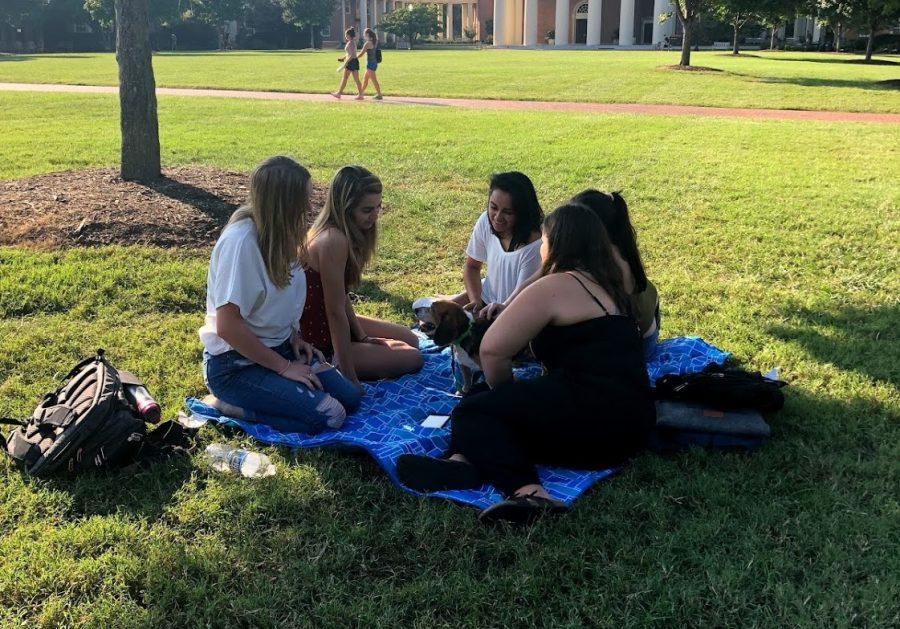Socialization may slow cognitive decline
September 17, 2020
Sparking up a conversation with friends and family also sparks connections in the brain. And these connections are proving to impact brain function, especially in aging adults.
As more Americans are living longer, more people are faced with cognitive impairment. This mental decline affects one’s ability to remember, learn and live independently. With no cure, it can potentially progress into dementia or Alzheimer’s disease.
According to the Alzheimer’s Association, over five million Americans are currently living with the disease, and the number is expected to grow. However, social engagement is proving to be an effective palliative care option for the elderly with memory loss.
Christina Soriano, an associate professor of dance of Wake Forest, and Dr. Christina Hugenschmidt, an assistant professor in Gerontology and Geriatric Medicine at Wake Forest School of Medicine, have teamed up to conduct research on the impact that dance and socialization have on brain function in older adults with Mild Cognitive Impairment (MCI).
“If you look at an Alzheimer’s patient’s brain, the whole brain is smaller … there’s atrophy throughout it,” Hugenschmidt said.
The goal of their research is to spar connections in participants’ brains through stimulation, which may improve the secondary symptoms of dementia, like effects on mood, balance and behavior. They also are looking for ways to improve the participants’ overall quality of life.
They orchestrate improvisational dance classes using the IMPROVment Method for the elderly. They are designed to encourage movement and social engagement among the participants and their caregivers.
Because of the varying degrees of memory loss in individuals, the IMPROVment Method is key because it encourages random, unchoreographed movements. Without the pressure of having to remember certain moves, dance and creativity are made more accessible to this elderly population. “Movement belongs to everybody,” Soriano said. “There are artists everywhere.”
Soriano encourages the participants to take risks during the classes because even trying is succeeding.
“There was one day when a group of high schoolers shadowed our dance class, and they were so reluctant to participate,” said junior Amanda Black, who assists with the research. “Meanwhile, we have these 80-year-olds who are so excited to do the dances.”
This open and inclusive environment creates a shared experience among the participants, which boosts their confidence and overall quality of life.
As social beings, interactions with other people are important for health and wellbeing.
Oftentimes, older adults become increasingly isolated and withdraw from social situations. Adults with MCI may isolate themselves even more out of fear of the potentially awkward consequences of losing their train of thought mid-conversation.
“[The participants] build relationships with one another and have something to look forward to,” said senior Kamryn King, who assists with the research. “This is a big deal to the older adults who are sometimes embarrassed or discouraged by their struggles.”
With this confidence boost, the adults are more willing to engage each other and stay mentally active, which is proving to decrease depression, a secondary symptom of dementia.
While this study has not yet concluded, the researchers expect that the groups with socialization will have better improved cognitive abilities compared to the control group, according to King.
However, with social distancing guidelines in place and retirement homes restricting visitors amid the pandemic, socialization is declining for the elderly population, who especially need the interaction.
“Social isolation has health effects equivalent to smoking 15 cigarettes a day,” Hugenschmidt said, referencing a study in Perspectives on Psychological Science.
According to Medical News Today, loneliness is found to negatively affect mental and physical health. It can lead to depression, anxiety, high blood pressure and a weakened immune system.
“I’m devastated [by the effects of the pandemic],” Soriano said. “You become a community, and it’s really hard to not be with them.”
With this study on hold for now, research team members are still calling the participants to touch base. However, King says it is likely that the current research group will have to start the intervention over because of this unforeseen break between the classes.
Regardless of the temporary hold, the research appears promising. Brain scans show the development of connections within brain pathways after the IMPROVment intervention. When pairing socialization with the physical activity of dance, it is expected to make these connections even stronger.
This research has been effective in bridging the gap between art and science. The impact that socialization and dance may have on slowing the progression of memory loss creates a sense of hope for people diagnosed with this incurable disease.
“New connections between separate parts of the brain are being established in the participants, which is pretty meaningful in the neuroscience world,” King said.














